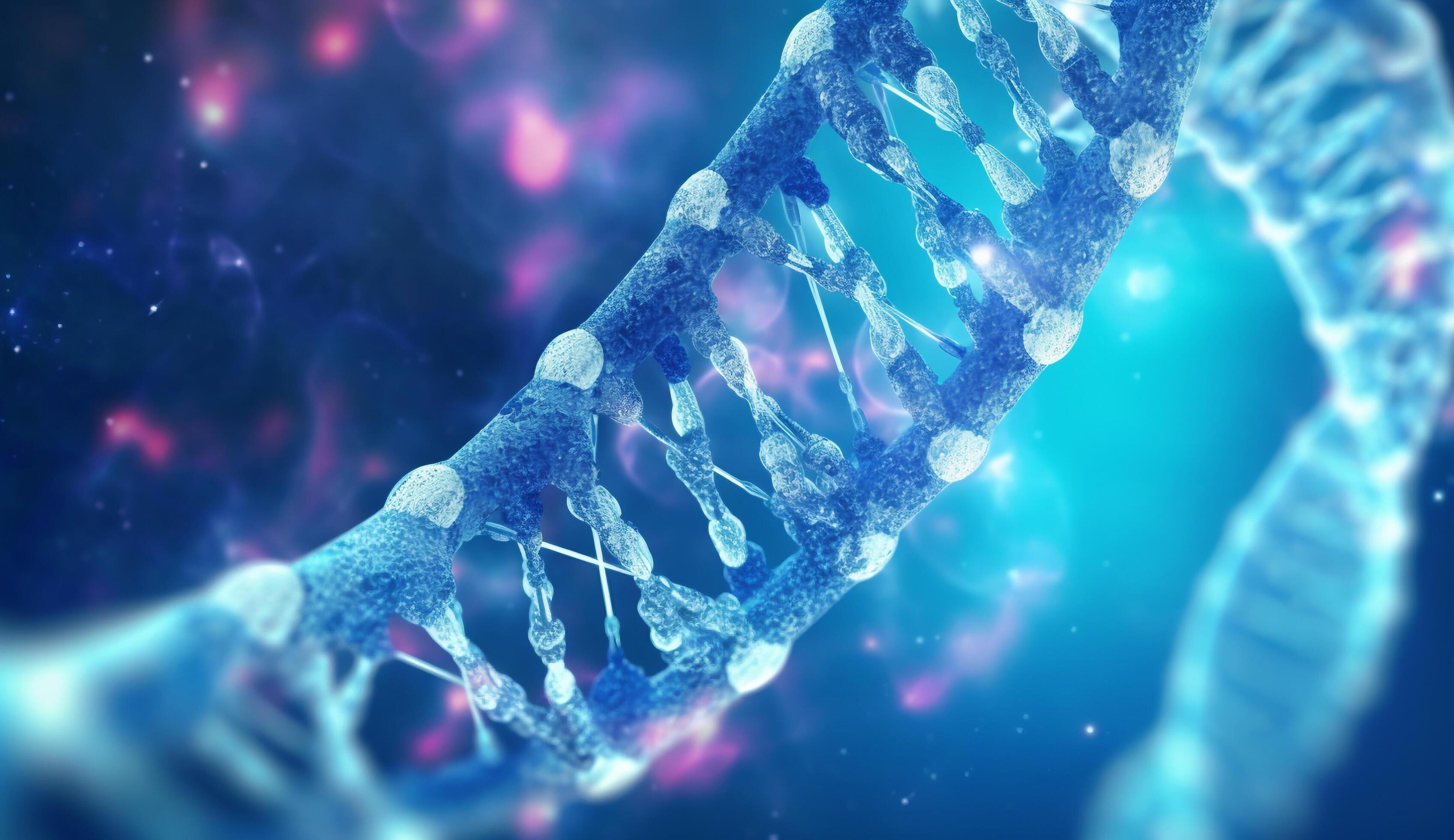This Ai Generates Dna

Premium Ai Image Dna Generative Ai From the future of being human substack. last week the arc institute, in collaboration with nvidia and researchers from stanford, uc berkeley, and uc san francisco, published an ai frontier model that is capable of generating plausible and seemingly functional dna sequences — much as mainstream generative ai platforms generate text or code. Researchers describe an ai model, schooled on billions of lines of genetic sequences, that can deduce how bacterial and viral genomes operate and use that information to design new proteins and even whole microbial genomes.

Premium Ai Image Dna Code Human Dna Structure Generative Ai Scientists today released what they say is the biggest ever artificial intelligence (ai) model for biology. the model — which was trained on 128,000 genomes spanning the tree of life, from humans. What are the benefits, risks, and ethical concerns surrounding ai generated dna? this article explores how ai is transforming genetic engineering, the potential for custom dna, and what the future holds for ai designed humans. The discovery that ai can reconstruct the hidden 3d landscape of our genome is not just a technical triumph—it’s a conceptual one. it tells us that even in the face of incomplete, noisy, or fragmented data, there is a way forward. The answer to that seemingly simple question has become evo, a generative ai model that writes genetic code. hie and his colleagues at the arc institute and the university of california, berkeley, introduced evo in a paper in the journal science.

Ai Can Now Change Human Dna ёясй Ai Has Enabled The Editing Of Human Dna Through Profluent S The discovery that ai can reconstruct the hidden 3d landscape of our genome is not just a technical triumph—it’s a conceptual one. it tells us that even in the face of incomplete, noisy, or fragmented data, there is a way forward. The answer to that seemingly simple question has become evo, a generative ai model that writes genetic code. hie and his colleagues at the arc institute and the university of california, berkeley, introduced evo in a paper in the journal science. Imagine an ai model so powerful it can read the genetic code of life, understand it, and even write it. meet evo, a groundbreaking artificial intelligence model that's set to revolutionize synthetic biology by decoding and designing dna, rna, and protein sequences at scales never before possible. According to a study published by the arc institute, the ai model, named evo 2, has been developed in collaboration with stanford university and nvidia. the model, which has been made available through web interfaces, provides researchers with the ability to generate and analyse dna sequences. But now a team of scientists is taking things a step further, with an algorithm to generate the entire genetic code of nonexistent people. Ai can now generate synthetic dna sequences never seen in nature. but dna alone isn't life—it's a set of instructions. the real challenge is translating those instructions into fully functional, self sustaining cells—a step we're still far from mastering. so, how close are we to ai creating entirely new species?.

Premium Ai Image Illustration Of A Dna Genertive Ai Imagine an ai model so powerful it can read the genetic code of life, understand it, and even write it. meet evo, a groundbreaking artificial intelligence model that's set to revolutionize synthetic biology by decoding and designing dna, rna, and protein sequences at scales never before possible. According to a study published by the arc institute, the ai model, named evo 2, has been developed in collaboration with stanford university and nvidia. the model, which has been made available through web interfaces, provides researchers with the ability to generate and analyse dna sequences. But now a team of scientists is taking things a step further, with an algorithm to generate the entire genetic code of nonexistent people. Ai can now generate synthetic dna sequences never seen in nature. but dna alone isn't life—it's a set of instructions. the real challenge is translating those instructions into fully functional, self sustaining cells—a step we're still far from mastering. so, how close are we to ai creating entirely new species?.

Premium Ai Image Dna Illustration Ai Generated Image But now a team of scientists is taking things a step further, with an algorithm to generate the entire genetic code of nonexistent people. Ai can now generate synthetic dna sequences never seen in nature. but dna alone isn't life—it's a set of instructions. the real challenge is translating those instructions into fully functional, self sustaining cells—a step we're still far from mastering. so, how close are we to ai creating entirely new species?.

Dna With 23847358 Stock Photo At Vecteezy
Comments are closed.